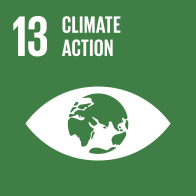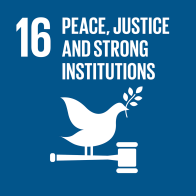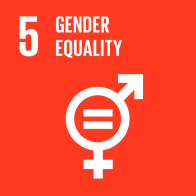SEB and the UN Sustainable Development Goals

As a bank, SEB has an important role to play in contributing to reach the UN Sustainable Development Goals (SDGs). Our main contribution is by supporting our customers in their transition, to steer financial flows towards sustainable purposes, such as green investments. We help them identify environmental, social and governance-related risks and opportunities and enable them to find solutions to their challenges.
By signing the UNEP FI Principles for Responsible Banking (PRB), we have committed to aligning our business strategy to international goals such as the UN Sustainable Development Goals (SDGs). Our key impacts, positive and negative, are related to the exposure we have through our financing and investment activities.
From an SEB Group perspective we prioritise five of the SDGs that are clearly linked to our business strategy and our sustainability ambitions. They are related to our strong heritage of creating long-term growth and innovation as well as maintaining responsibility and an international outlook.

Climate action
Climate action is addressed throughout our business, from our pioneering role in green financing to our current work on helping our customers to transition and reduce their climate impacts.

Decent work and economic growth
Through our business we drive economic development both directly and indirectly, and contribute to the creation of new jobs and growth in society, for example by supporting entrepreneurs and providing individuals and companies access to capital and financial services via our microfinance funds.

Industry, innovation and infrastructure
Innovation, entrepreneurship and long-term relationships with industrial companies are part of our DNA, thereby contributing to a strengthening of infrastructure. We have long been active in standard-setting bodies such as the International Capital Market Association (ICMA). Through SEB Greentech we support companies in the green technology sector.

Peace, justice and strong institutions
Our business contributes to financial stability. We are committed to preventing corruption and bribery in all forms, money laundering, cybercrime, sabotage, intrusion attempts and financing of terrorism.

Gender equality
Gender perspectives shall be taken into account in the advice we provide to corporate as well as to private customers. In our microfinance funds, one focus area is financial inclusion, which ensures support especially to women in emerging markets. Internally, gender equality is an integrated part of our work with inclusion and diversity.
In 2021 SEB conducted an impact analysis – in line with our commitments to the Principles for Responsible Banking (PRB) – on which SDGs we impact the most through our credit portfolio. The analysis which drew on SEB's own advisory tool, the Impact Metric Tool, was based on SEB's exposure to each sector in its credit portfolio. The exposure was combined with the impacts each sector has, positive and negative, on the SDGs.
SEB's PRB impact analysis in the Annual and Sustainability Report 2021, p.45
Products and services that promote the goals
In addition, we offer products and services that contribute to all the Sustainable Development Goals. Among the examples are:

- The SEB Impact Metric Tool, a quantitative analysis tool that measures sustainability in equity portfolios. It assesses – among other things – positive and negative impacts with respect to the SDGs. Investors can thereby find investment opportunities and identify risks related to SDGs.
- Lyxor SEB Impact Fund invests in companies that contribute to solving future global challenges. The companies operate in five areas linked to the areas of sustainable energy, water supply, food and agriculture, resource efficiency and social development, where many of SDGs are included.
